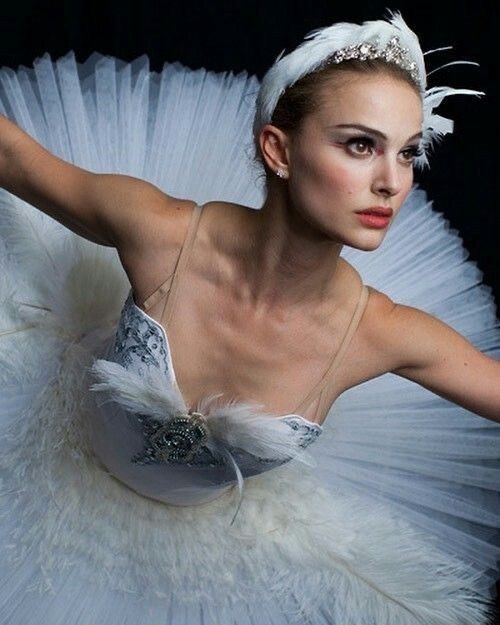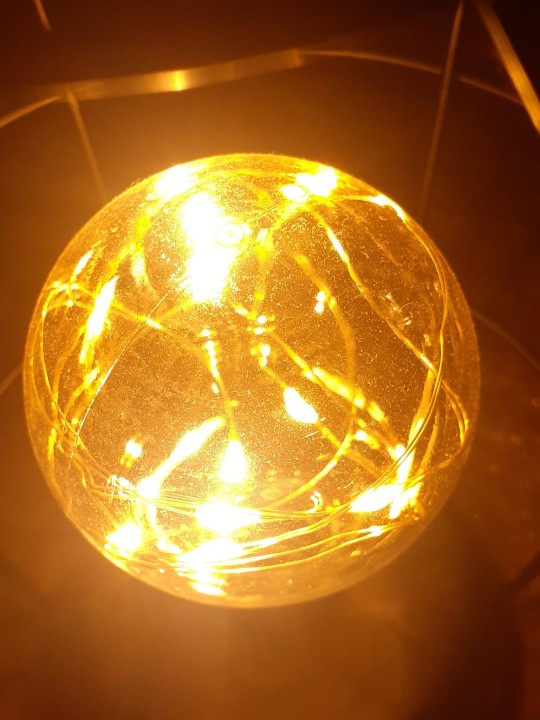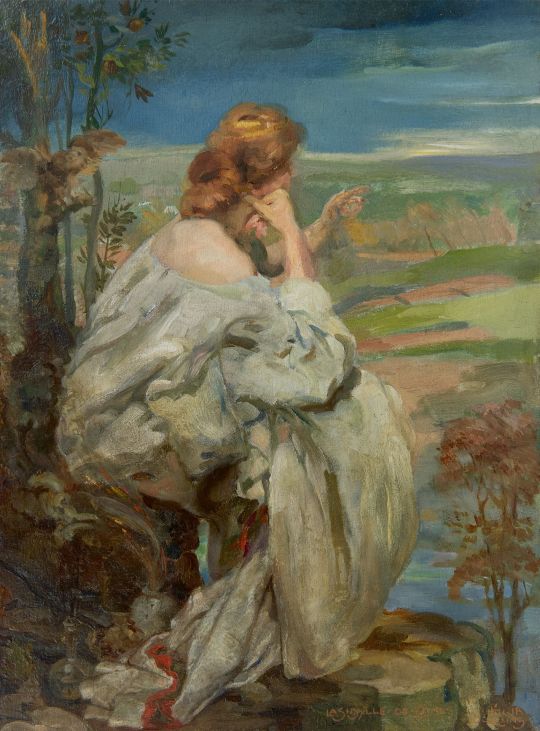#apollonian
Video
youtube
Apollo & Dionysus | Leaders of Consciousness
this was very interesting so i had to share
7 notes
·
View notes
Text
Those who want to abolish all hardships because they themselves are not up to them are like sick people who wish to abolish bad weather—rain, no matter what the consequences might be to others and to the earth generally.
—almost as stupid as would be the desire to abolish bad weather—say, from pity for poor people.
Friedrich W. Nietzsche, Ecce Homo; Why I Am A Destiny.
#philosophy tumblr#philoblr#german philology#german authors#philosopher#friedrich nietzsche#metaethics#existentialism#moral psychology#truth#apollonian#slave and master morality#dark academia#life quotes
18 notes
·
View notes
Text
BLACK SWAN - THE UNREWARDING CHASE AFTER PERFECTION
Tw: bulimia, self-harm, sexual assault, body horror
''Black swan'', directed by Darren Aronofsky, is a 2010 film. It deals with our main character, Nina, a ballerina which gets picked for the role of both The white swan and The black swan in a production of "Swan lake", but as she is urged by her artistic director to 'lose herself' her sanity crumbles before her. In this post I'd like to address the themes, motifs, character development, and what black swan made me feel, because I find art is about emotions.

★ SWAN LAKE ANALOGY
The story of "Swan lake" is a direct analogy most readers can pick up on during their watch of Black swan and I'd like to highlight some thoughts of mine on the parallels between the two.
" virginal girl, pure and sweet, trapped
in the body of a swan. She desires
freedom, but only true love can
break the spell. Her wish was
granted in the form of a prince.
But before he can declare his love,
her lustful twin, the Black Swan,
tricks and seduces him.
Devastated, the White Swan leaps
off a cliff, killing herself. But,
in death, finds freedom. " - Leroy
This recounting of "Swan lake" is a basic synopsis of the movie Black swan. Nina is perfect, and she finds this need for perfection a prison. We see her eat half a fruit for breakfast, spend all her time in the company, and put mountains of effort into every step she takes. This is exactly Nina's downfall - if Leroy was right about one thing it's that perfection is inherently imperfect. It's messy and dirty and full of mistakes, because perfect is expected.
Nina believes her 'freedom' will come in the form of Leroy, that he can cultivate her into the girl she was destined to be, and sees Lily as her doppelganger - an evil xerox who wishes to steal her only answer away from her. Nina is mistaken, and actually her mistake falls perfectly into the plot of Swan lake - she mixes up the roles. Lily is much closer to the prince in the sense she allows Nina to be herself. She genuinely desires to see Nina succeed and yet doesn't believe that Nina should torture herself to perfection. Although it's difficult to distinguish between reality and illusion during the film, when the credits roll, I think we all know who's the twin, who's the swan, and who's the prince.

★ THE THEORY OF ART
Nietzche (😒...) Coined the terms 'dyonisian' and 'apollonian' in his book, Birth Of Tragedy. The Dyonisian is the tendency for freedom - pleasure, lack of thinking, impulse. The Apollonian is the tendency for structure - order, planning, perfecting. Nietzche claims that good art is the balance between the two, you can't be overly obsessive over detail nor carelessly creating.
Nina is Apollonian. She is so invested in being the perfect dancer she loses what made her good in the first place - her love for the profession, her daintiness, her emotional connection to pieces. Throughout the movie, we see how obsessive Nina becomes with perfection as her bulimia gets worse, she grows suspicious of her peers, and eventually resorts (does she...?) to murder for her sake. Truly, Nina couldn't balance art because she couldn't let herself go, and only when she did her performance was perfect.

Black swan made me unnerved. As an artist, it's truly an enthralling experience seeing a young woman shred herself to bits trying to be perfect. I almost cried when Nina forced herself to puke the nothing she ate, because it's an amazing metaphor; trying to use up something that is not there. I think about black swan from time to time, and I realize that Nina isn't perfect - she was. She was her best when she loved dance. When she lived living . When she loved herself.
Stay yourself, stay curious
#dark academia#romanticism#academia#fredrich nietzsche#nietzche#dionysian#Apollonian#birth of Tragedy#black swan movie#black swan#nina black swan#theory#black swan analysis#movie analysis#letterboxd#GOD I LOVE BLACK SWAN
18 notes
·
View notes
Quote
But who are you really without the constraints of law, morality, norms, and religion? Who or what do you turn into in your most barbaric state?
Lady Macabre Beth
#barbaric#barbarism#dionysus#dionysian#marquisdesade#marquisdesadephilosophy#thesecrethistory#donnatartt#darkacademia#apollonian#apollo#bacchus#bacchanal#bacchanalia#godofwine#godofrevelry#revel#revelry#wine#ecstasy#godofecstasy#intp#intj#entp#entj#infp#infj#Aquarius#cancer#scorpio
48 notes
·
View notes
Text
The Sun cannot be held, imprisoned nor contained,
But it sure as Hell can be found everywhere,
Even in the smallest of places,
Yet,
It requires a keen eye
and a heart for
the unexpected places
in which it can be found. - C. L.

"No further explanations. No regrets."
#apollonian#poetry#midnight poetry#apollon#apollo deity#apollo#apollo offerings#lord apollo#offerings for apollo#apollodeity#paganblr#pagan#pagan witch
56 notes
·
View notes
Text
Portrait Prose
Portrait Prose is a new avant-garde movement in Literature and it has its resemblances to still life painting. Portrait Prose is a writing of art that seeks to embody the still life painting through the prose of novelistic writing. Just as art for art’s sake exists, portrait prose exhibits write for write sake. Reading the literature of portrait prose gives the audience the reality of experiencing a painting.
The basic ingredients of Portrait Prose are:
(a Tone
(b Content
(c Flavor
(d Rhythm
(e Ecstasy
Now what is tone in portrait prose? Tone is the elegance in writing. It is the description of still life objects with precision and exactitude. It is thought translated into reality. The realism of the art object is enthroned into the muse of writing. It is a description in poetic prose. It is a picturesque imagery of art objects.
Now what is content in portrait prose? Content is the transmutation of the picture image of the object into words. Content is clarity of imagery. Words become idealized as the signified and pictorialized as the signifiers.
Now what is flavor in portrait prose? I am using two literary concepts called the langue and the parole. Langue is the way the object speaks to the author, and parole is putting the still life imagery of the art object into a vivid imagery of words. Parole is beauty personified.
Now what is rhythm in portrait prose? Rhythm is the movement of words in a psychic dance. Words are the aura of a hyperbole. Here I use Philosopher Nietzsche’s concept of the Apollonian and the Dionysian. For Nietzsche, Apollonian refers to harmony and melody and the Dionysian refers to rhythm and beat. Portrait Prose is the dance of literature. The writer captures the pathos and beauty of words onto the canvas of writing. Portrait Prose seeks to achieve a balance between the Apollonian and the Dionysian and emerge into an aesthetic ideality.
Now what is ecstasy in Portrait Prose? Ecstasy in portrait prose is the manifestation of catharsis and sublimation. Words become a referential reality as a painting. The audience viewing portrait prose get the metaphoric experience of an orgasm.
To sum up, I would like to say: portrait prose is a still life painting of words. Ordinary everyday objects are artified into cathartic mergers.
Some Examples of Portrait Prose
Falling Leaf
Oh withered leaf, you dance in the wind as an angel on wings; there now you are nearing demise by touching the ground.
Flying Bird
You narcissist on wings—your wings are the poem of the soul; your movements are an aesthetic of pleasure.
Butterfly
You psyche on wings, you ballet as a passionate song; your wings have the flavor of Epicurean taste; your robes are that of an angel; you seek passion on wings.
#Portrait Prose#Theory of the Novel#Literary theory#Philosophy#Still Life#Tone#Content#Flavor#Rhythm#Ecstasy#Nietzsche#Langue#Parole#Apollonian#Dionysian
3 notes
·
View notes
Text
"Ephemeral offspring of a travailing genius and of harsh fortune, why do you force me to speak what it were better for you men not to know?
For a life spent in ignorance of one's own woes is most free from grief. But for men, it is utterly impossible that they should obtain the best thing of all, or even have any share in its nature (for the best thing for all men and women is not to be born); however, the next best thing to this, and the first of those to which man can attain, but nevertheless only the second best, is, after being born, to die as quickly as possible."
But if existence is so unbearable, how can humans cope? The first thing that the Greeks did, says Nietzsche, was to create gods. They deified everything around them, natural or not, good or bad. The Greek gods had human traits. They were just as moral as they were immoral, they went after virtue as much as they sinned. The fact that the gods lived the same lives as humans affirmed the lives of the mortals.
1 note
·
View note
Text
Apollonian
Apollonian [ap-ə-LOH-nee-ən]Part of speech: adjectiveOrigin: Greek, 17th century1. (Greek mythology) Relating to the god Apollo.2. Relating to the rational, ordered, and self-disciplined aspects of human nature.Examples of apollonian in a sentence“Our roommate Brad had Apollonian tendencies toward keeping our house well ordered and harmonious.”“Former Canadian Prime Minister Pierre Elliot…
youtube
View On WordPress
#Apollonian#daily#definition#dictionary#educational#Knowledge#learning#lesson#schoolhouse#vocabulary#word#Youtube
1 note
·
View note
Text
You ever have a moment where you reconsider something you thought a lot about in the past but then sort of turned your attention away from for a while, and your new perspective just blows the whole thing open?
Me thinking about russ and magnus during ATS/PB today after years of taking a break from HH/40K lore yielded one such series of revelations.
I was thinking about Betrayer and Russ' attempt to give Angron a lesson via the Night of the Wolf. I was thinking about Prospero Burns and Russ' belief that he's had a direct line to Magnus this whole time via Kaspar. I was thinking about that 'please'. And.
I know this is pretty much canon to the text but I've never before really Considered that one of Russ' motives in keeping this guy alive and sending him out on compliances with his Legion was (Russ believed at least) letting Magnus see the SW in action and hoping that this might influence him into trying to Avoid doing anything that might cause Russ to be sent after him.
In the past I've talked a lot about the SW keeping Kaspar around to see what would happen in terms of thinking the TS were up to something or going to do something to the Legion, which is very much the assumption the Chaos entity wanted them to make, but looking back I tbh think i slept on the concept of Russ, who canonically has taken out at least one of the Lost Primarchs in an event which is prefers not to speak (or at least the codex Strongly Implies that Russ has been used against another primarch before), and who also canonically went into the Night of the Wolf fully willing to die to make his point to Angron if only Angron could understand what he was doing.
I'm sort of compelled by the concept because in a sense Russ was letting (what he thought was) Magnus take a peek behind the barbarian mask he likes to put on, to see into a more genuine heart of his legion, letting his guard down a bit by allowing this obviously-compromised spy in. Much the same way he let the mask drop when he went to try and talk some sense into Angron, bringing up philosophy and reading and ideals that Russ' ignorant-but-noble barbarian persona would never admit to being interested in let alone reading.
And both times the gambit failed, in Magnus' case because it wasn't Magnus on the other end of the line, and in Angron's case because he was too far gone to really get what Russ was illustrating for him.
The whole thing was orchestrated so well, ironically giving the "proof" that Magnus was up to something via this sleeper agent spy that the SW were toting around with them, playing on Russ being curious enough to keep this guy around and connect the dots on the (false) links between this guy and the TS. I have this headcanon that Russ and Lorgar were actually fairly close, with Russ actually talking to Lorgar about Lorgar's writings, because he didn't seem surprised that Russ had read them and had thoughts on them in Betrayer, so I actually sort of like the idea that he had a hand in setting up the fall of Prospero? I like the tragedy of the idea that he at least had some input on the idea, being familiar enough with Russ to know he'd take the bait.
Which would make that a third time Russ got genuine with someone and had it either fail or be used against him...
#i'm sorry i love to torment him#russ' whole deal is that he's trapped in the mask he constructed for himself#and yet also unwilling to unmask himself and be genuine until its too late#he desperately doesn't want to kill another brother so he keeps trying to engineer shit to steer them away from situations#where he'd have to kill them#unfortunately that being the Only time he's genuine means it never fucking works#russ being Canonically Dionysian coded in the Apollonian-Dionysian duality truly coming back to bite him in the ass every time#sorry buddy but you're 'futility of fighting fate' chaotic unjust nature coded and all your angst about the role you were created to play#is entirely apt but also completely a self-fulfilling prophesy in terms of your ability to forge the relationships that would have saved yo#something something and this is why valdor tops but that's a whoooooole other essay#leman russ#warhammer 40k#russ’ hug brigade
27 notes
·
View notes
Photo

The Sybilles de Cumes - Huib Luns , 1906.
Dutch, 1881-1942.
Oil on panel, 32,6 x 23,9 cm,
398 notes
·
View notes
Text
Happy new year! To the people who matter! Skål!
I love you all. I hope you know that. <3
#pagan witch#lokean#apollonian#happy new year#witchy friends#witchy things#i hope you have a great day
16 notes
·
View notes
Text
Oh fuck Cassandra is the Dionysian to the Sol/Helio Apollonian
#me in humanities class: this is just like fantasy high#prof mentioned apollonian/dionysian dichotomy and i was like hm. weird the dichotomy isnt apollo/artemis#but then i went ohh lunarness can just be aligned with the sun. like galicea. which makes cassandra the mysterious dionysus#playing flute in the night#idk if this makes any sense#it does to me#fhjy#fh#dimension20
5 notes
·
View notes
Text
The etymology of MUSIC and various arts (Essay)

Of course, music in English means "music", but this name somehow reminds me of the muses in Greek mythology, the nine goddesses who are guardians of art. After doing some research, I found the following statement:
@@@@@@@@@@@@@@@@@@
music
Many people think of music when they think of art. Music is a very familiar word for Japanese people, and its etymology goes back to the muse (musa) of Greek mythology. In other words, the origin of the word is the Greek word mousike, which means "human activities that partake of the grace of the Muses" (music, poetry, etc.).
On the other hand, the word museum, which means 'museum', is also derived from the Greek mouseion, which means 'temple of the Muses'. Also, when we say art museum in English, we think of it as an art museum, and this expression is naturally associated with muse. In other words, the three Japanese words ``music'', ``museum'', and ``art museum'' all have a common etymology when compared with the corresponding English expressions. is clear.
@@@@@@@@@@@@@@@@@@@@@
The above description has satisfied my curiosity, but to continue my association a little further, "art" does not necessarily follow "norms of life." Japanese Manga Artist: Osamu Tezuka's "Barbora:ばるぼら", the youngest daughter of a muse appears in front of the main character writer in the form of a homeless person, empowering his artistic creation. But on the other hand, "Barbora" was also a witch. Art has a guardian deity full of contradictions.
These facts are brilliantly explained by Nietzsche with the metaphor of "the Apollonian and the Dionysian". "Apollonian" means positivity, righteousness, strength, health, etc., and "Dionysian" means negativity, unrighteousness, weakness, unhealthy, etc. It is true that Apollo, the sun god, is a model student of the gods who are "unshaded and fair" (Zeus chose a goddess with a long history), but Dionysus is "a grape and a wine made from it." He is the god of wine, and he is a sly god who desires to drink to the point of intoxication, and his father is also Zeus. But mother is a human woman.
Comparing the two representative arts, music and painting, it seems that there are many Apollo-like works and composers in the genre of music. I don't often hear of people composing while drowning in alcohol. (Perhaps Berlioz, who composed the Symphony Fantasie, seems to be a rare example.) On the other hand, in the case of painters, I think there are many Dionysus-like people, including Utrillo, who was an alcoholic. In other words, although it seems that they do not drink in front of the staff paper, I think there are many painters who drink in front of the canvas.
…Nevertheless, the muse will lend strength to both arts (even if the vectors are opposite).
#music#etymology#muses#Osamu Tezuka#Barbora:ばるぼら#Nietzsche#the Apollonian and the Dionysian#Berlioz#Utrillo#essay#rei morishita
15 notes
·
View notes